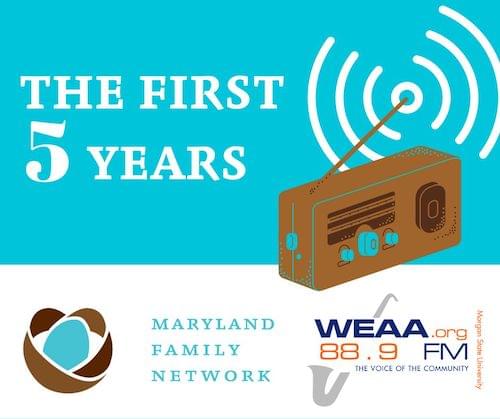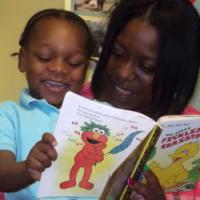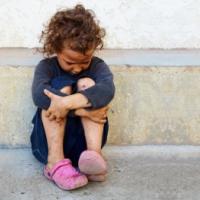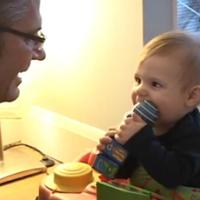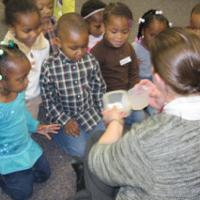If left untreated, a mental health problem can delay a child's normal development and lead to more severe problems later on. It's good to know there are others that parents can turn to and trust. Maryland Family Network mental health specialists work directly with child care providers, children, and parent to identify and solve problems. Together you can decide if it's just growing pains or something more.
Resources
Being a grandparent - like being a parent - isn't easy, especially in this digital age where things change so quickly. This week we present 10 tips on how to be a successful grandparent.
Resources
Choosing child care is stressful for any parent. For parents who have children with special needs, the anxieties can be compounded. LOCATE Child Care, a program of Maryland Family Network, is designed to help all parents in Maryland find child care.
Resources
March is Read Aloud Month. To celebrate we've compiled some basic guidelines for making read-aloud time stimulating and fun for everyone. Soon you'll open a chapter that ends in a lifelong love of reading for the child in your life.
Resources
Read Across Maryland
The recent convergence of two fields of research -- neurological studies of early brain development and longitudinal studies of the long-term impact of early childhood experiences - confirm the importance of the years from birth to age five.
Resources
Carolina Abecedarian Project (Frank Porter Graham Child Development Institute, UNC Chapel Hill)
The Chicago Child-Parent Centers (Promising Practices Network) [
From birth to age five, children experience a surge in brain growth and cognitive ability that sets the framework for all future development.
Resources
Experiences Build Brain Architecture (Center on the Developing Child, Harvard University)
In Brief: The Science of Early Childhood Development (Center on the Developing Child, Harvard University)
Core Concepts in the Science of Early Childhood Development (Center on the Developing Child, Harvard University)
For more information, visit ZERO TO THREE, National Center for Infants, Toddlers, and Families.
A variety of risk factors (physical or emotional abuse, chronic neglect, caregiver substance abuse or mental illness, exposure to violence, and/or the accumulated burdens of family economic hardship) can impinge on healthy development in the early years.
Resources
Toxic Stress: The Facts How toxic stress affects brain development in young children. (Center on the Developing Child, Harvard University)
From Neurons to Neighborhoods: The Science of Early Childhood Development (National Research Council and Institute of Medicine)
Poverty Fact Sheet (Zero to Three: National Center for Infants, Toddlers, and Families)
Research findings on effects of poverty at the Center on the Developing Child, Harvard University Metro Trends blog and The Negative Effects of Instability on Child Development: A Research Synthesis from Urban Institute
Addressing Poverty in Schools (New York Times - includes the 9/11 trauma study mentioned above)
'Crack baby' study ends with unexpected but clear result (The Philadelphia Inquirer)
Young children learn language by hearing words, especially conversation directed at them.
Resources
Bridging the Vocabulary Gap: What the Research Tells Us about Vocabulary Instruction in Early Childhood (National Association for the Education of Young Children)
The Power of Talking to Your Baby (New York Times)
Studies Show Talking With Infants Shapes Basis of Ability to Think (New York Times)
Narrating Your Child’s Day (video from Maryland Family Network)
Experts agree: Children’s work is play. Through play, children acquire cognitive, social, and physical skills.
Resources
The Importance of Play in Promoting Healthy Child Development and Maintaining Strong Parent-Child Bonds (American Academy of Pediatrics)
Play is more than fun. (TedTalks)
Effort to Restore Children’s Play Gains Momentum (New York Times)
Playing for All Kinds of Possibilities (New York Times)
Old-Fashioned Play Builds Serious Skills (National Public Radio)
For more information, go to the Alliance for Childhood.
Preschool plays an important role in preparing children to succeed in kindergarten. Publicly funded pre-K helps ensure that children of all income levels have access to preschool.
Resources
The Case for Pre-K in Education Reform (The Pew Center on the States)
Investments in Education May Be Misdirected (New York Times)
The Effects of Oklahoma's Early Childhood Four-Year-Old Program on Young Children's School Readiness (National Institute for Early Education Research)
For more information, go to the National Institute for Early Education Research (NIEER).


